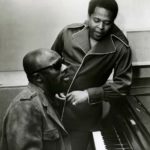Stax Songwriter Series
Isaac Hayes and David Porter
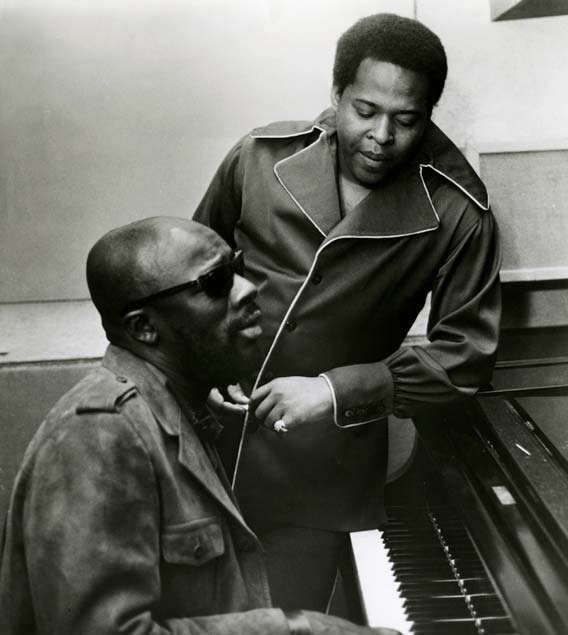
Isaac Hayes and David Porter
Often regarded as the standard-bearers for songwriting excellence and hitmaking prowess at Stax Records, contributors Isaac Hayes and David Porter boast a collaborative resume that has been left unparalleled by label contemporaries. While in partnership, the two young musicians fostered a catalog of efforts that rivals the top musical scribes of the 20th century, regardless of genre. As the shape of American soul music began to take form in the 1960s, Porter and Hayes’ compositions held a conversation with music fans across the globe that helped to signal the arrival of a signature sound in Memphis. And, just as their spontaneity sparked a string of undeniable hits that seemed to have no end in sight, the two craftsmen’s paths began to diverge at the hands of solo success for one of its members.
Born in Memphis in November 1941, David Porter took to music at a young age, honing his knack for performance at church and local talent shows. He’d get his first taste of recording, with his debut single, “Farewell,” earning some local recognition before the small label on which the song was released folded, just as the song gained traction. He’d give solo success another go in 1962, recording “Words Can Never Say,” backed with” Practice Makes Perfect” under the pseudonym Kenny Cain. The single would release on South Memphis’ Hi Records with the aid of Willie Mitchell, who’d recently taken a premier role in the label and its studio, which would become a powerhouse of soul music under his direction in the following decade. In 1963, performing as “Little David” for Savoy Records, Porter would make his rounds with “Home Is Where You Come” and “So Long (Are the Last Words You Said),” featuring accompaniment by musicians already woven into the early tapestry of Stax house players: saxophonist Floyd Newman, bassist Lewis Steinberg, guitarist Charlie Freeman, and drummer Al Jackson, Jr.
In fact, Porter worked across the street from Stax Records and its Satellite Record Shop at Big D Grocery, greeting customers as a bagger. With routine trips to the upstart musical hub of his neighborhood, he’d hope to try his hand at writing songs for its budding talent. It would be Estelle Axton who took a keen liking to Porter’s persistence and a distinct interest in his ambitions, encouraging him to draw inspiration from best-selling rhythm and blues music popular with customers in the Satellite shop. Eventually becoming a regular in-studio, it’d be Porter who would make the history-making trip to his alma mater, the nearby Booker T. Washington High School, to excuse an eager baritone saxophonist named Booker T. Jones to add his talents to Rufus and Carla Thomas’ 1960 hit “’Cause I Love You.”
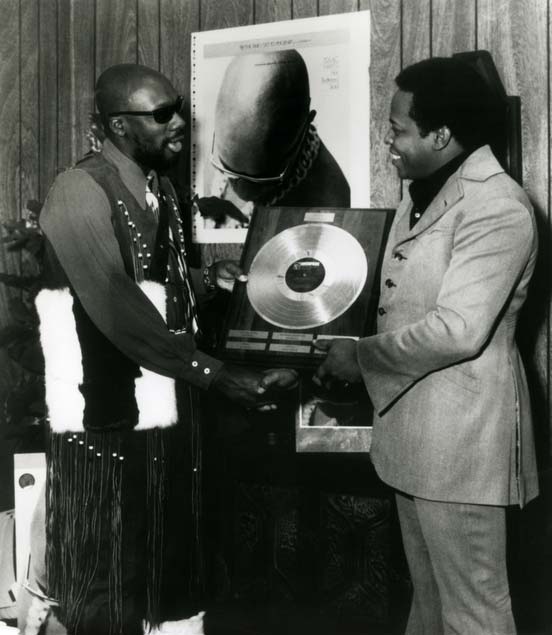
Isaac Hayes and David Porter
Having written alongside Marvell Thomas and Steve Cropper, Porter would set his intentions on working closely with a familiar multi-instrumentalist named Isaac Hayes, whose childhood group The Teen Tones rivaled Porter’s own The Marquettes at local talent competitions in which they both cut their teeth for bragging rights and prize earnings.
Hayes, born in Covington, Tennessee, in 1942, was raised by his grandparents in dire circumstances, following the death of his mother and exit of his father while he was an infant. The family would move to Memphis when Hayes was a small child. And though he applied himself in music, his insistence on providing for his family would hinder his education, delaying his graduation from Manassas High School until he was 21 years old. Under the direction of Floyd Newman, Hayes would become a pianist on the bandstand at Plantation Inn, one of the area’s premier nightclubs. Having already recorded for the Youngstown label with former Stax engineer Chips Moman, Hayes would follow Newman to the Stax studio and test his abilities in multiple musical ensembles, including Sir Isaac & the Doo-Dads and The Baracudas. Making himself useful around the studio, he’d jump in on various instruments before settling in as a substitute on keys, as Booker T. Jones was away studying at Indiana University.
Taking a liking to one another in-studio, both Hayes and Porter dreamed of chart-topping success akin to the likes of soul stalwarts Holland-Dozier-Holland. They’d find early success as a pair with Carla Thomas’ “How Do You Quit (Someone You Love)” in 1965. But the arrival of Miami-bred duo Sam & Dave, who’d been sent to Memphis at the orders of Atlantic Records brass, would give Hayes and Porter the pet project that would alter the trajectory of their careers, as well as kickstart the engine that would shoot Stax into the soul stratosphere.
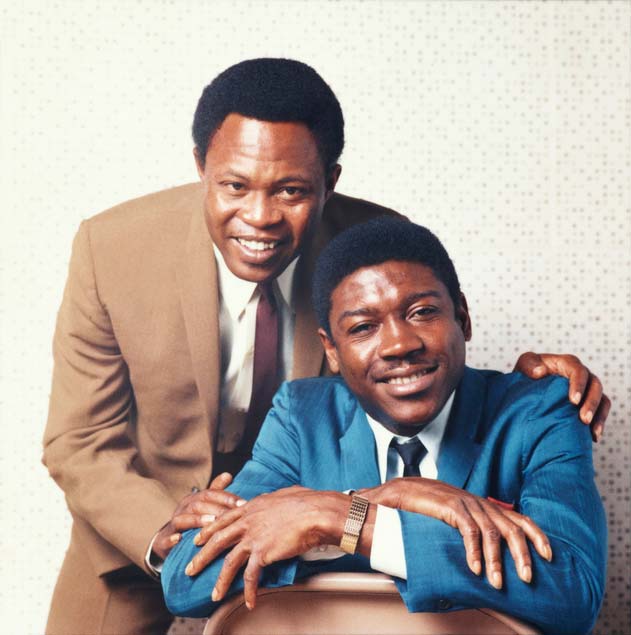
Sam & Dave – Artists who performed Hayes & Porter songs. Photo © Bill Carrier courtesy of Stax Archives
The pairing of Hayes and Porter, along with Sam & Dave would quickly pay dividends, resulting in 1965’s “I Take What I Want” and the gospel-inspired “You Don’t Know Like I Know.” In 1966, they’d strike again with the sensual “You Got Me Hummin’.” However, it would be the live wire No. 1 Billboard R&B hit “Hold On, I’m Comin’” that would kick down the door of soul stardom and introduce the Stax sound to the relative ubiquity that it still enjoys today.
And, amid hits, such as the call-and-response of “I Thank You” and the balladry of “When Something Is Wrong With My Baby,” Hayes and Porter would deliver another smash in the defiant and poignant anthem “Soul Man,” netting another chart-topping sales performance and a Grammy® Award for Best Rhythm & Blues Group Performance.
Outside of their work with Sam & Dave, Hayes and Porter accomplished widespread acclaim with “B-A-B-Y” by Carla Thomas while lending notable compositions such as Mable John’s “Your Good Thing Is About to End” and Johnnie Taylor’s “I Got to Love Somebody’s Baby,” among others.
Hayes would make the then-unlikely turn to record a full-length solo debut on Stax subsidiary, Enterprise Records, in 1967. Though met with little fanfare, Presenting Isaac Hayes would show early flashes of the streetwise, stretched-out interpretations of pop standards that Hayes had already delighted listeners within smoky late-night romps in Memphis-area nightclubs. Soon enough, it’d become a revolutionary calling card, placing him in front of a new crop of stars as the sound of soul transitioned into a new decade.
When Stax’s relationship with Atlantic Records came to an end in 1968, the homegrown label lost Sam & Dave and the entirety of its previous catalog along with it. At the request of Stax executive Al Bell, nearly 30 albums were readied for the marketplace, in a desperate effort to rejuvenate the Stax brand on radio and store shelves. Armed with relative creative freedom, Hayes second at-bat as an album artist, 1969’s Hot Buttered Soul resulted in groundbreaking returns. Thrust into a role as Stax’s foremost male soloist, songwriting for other artists took decreased priority for Hayes, leaving Porter to try new opportunities within the company, from his own string of solo LPs to the production of acts such as The Emotions, The Soul Children, and The Bar-Kays.
As both men’s careers grew separately, with Porter continuing a commitment to leadership in songwriting and production and Hayes parlaying solo success into a career in film and television, in 2005, Hayes and Porter were inducted together into the Songwriters Hall of Fame for their work as a duo. In 2019, “Soul Man” was selected for preservation by The National Recording Registry of the Library of Congress.
The Songwriters Series ARCHIVE

Frederick Knight
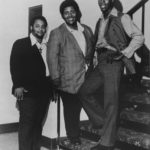
Rance Allen

The Mad Lads

Carl Hampton and Homer Banks

Eddie Floyd and Al Bell

William Bell and Booker T. Jones
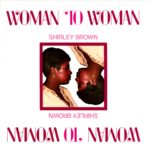
Eddie Marion, James Banks, and Henderson Thigpen

We Three (Bettye Crutcher, Raymond Jackson & Homer Banks)

Eddie Floyd and Steve Cropper
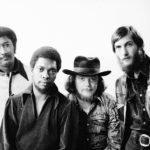
Booker T & the M.G.’s

Steve Cropper and Otis Redding
